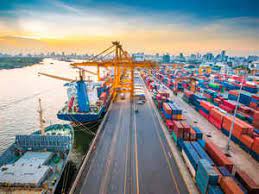The role of alcohol in the history of transportation and trade
Alcohol has played an important role in human history, with evidence of alcohol consumption dating back to the early civilizations of Mesopotamia and Egypt. While the consumption of alcohol has been a cultural and social practice for millennia, it has also played a significant role in transportation and trade, particularly in the British Empire.
In the early days of transportation, alcohol was a common form of fuel for ships. Beer and wine were preferred over water due to the risk of water contamination during long voyages, and spirits were also consumed to alleviate the boredom and monotony of life at sea. In addition to being a source of hydration and entertainment, alcohol also played a vital role in trade.
During the Age of Exploration, European powers were in search of new trade routes to the Far East, and alcohol played a significant role in securing their success. European traders introduced spirits to indigenous populations in the Americas, Africa, and Asia, and in doing so, they established a lucrative trade. Rum, for example, became a popular commodity in the American colonies, with molasses from the West Indies being distilled into a potent alcoholic beverage that was exported throughout the colonies and beyond.
In addition to being a source of trade, alcohol also played a role in the development of transportation infrastructure. In the early days of British colonization, rum was used as currency in the Caribbean, and the sugar trade that supported rum production helped to fund the construction of roads, bridges, and other infrastructure that facilitated transportation and trade.

As the British Empire expanded, alcohol continued to play an important role in trade. Gin, for example, became popular in the 18th century and was exported to British colonies around the world. The gin trade played a significant role in the development of the British Empire, with gin distilleries providing employment opportunities and gin serving as a means of exchange in many of the colonies.
However, alcohol also had negative effects on transportation and trade. The consumption of alcohol by sailors and traders often led to drunkenness and disorder, and alcohol-fueled brawls were a common occurrence on ships and in ports. In addition, the availability of alcohol often led to poor decision-making, with traders and sailors consuming more than was necessary or safe, leading to accidents and fatalities.
Despite these negative effects, alcohol remained an important part of transportation and trade in the British Empire. The production and consumption of alcohol continued to be a vital part of the economy, and the development of new technologies and transportation infrastructure only increased its importance.
The rise of the railway in the 19th century saw a new role for alcohol in transportation. Beer and spirits were transported by rail across the country, with breweries and distilleries located close to railway lines to facilitate the transportation of goods. This new mode of transportation led to the growth of the brewing and distilling industries, with many of the largest breweries and distilleries in the country being established during this time.
However, the consumption of alcohol also had negative effects on railway safety. Drunkenness among railway workers led to accidents and fatalities, and the consumption of alcohol by passengers often led to disorder and vandalism. As a result, many railway companies introduced measures to control the consumption of alcohol on trains, such as limiting the sale of alcohol and prohibiting the consumption of alcohol on certain routes.
Despite these challenges, the role of alcohol in transportation and trade continued to evolve. The development of the automobile in the 20th century saw a new era of alcohol consumption, with the popularity of the cocktail and the growth of the hospitality industry driving demand for new and innovative alcoholic beverages.
However, the dangers of alcohol consumption while driving soon became apparent, and in many countries, laws were introduced to limit the consumption of alcohol by drivers. In the UK, the legal blood alcohol limit for drivers was introduced in 1967 and has been reduced over time in response to evidence of the impact of alcohol on driving ability.
Today, the role of alcohol in transportation and trade continues to be important but is also subject to greater scrutiny and regulation. In the UK, the brewing and distilling industries continue to play a significant role in the economy, with many iconic brands known around the world.
However, the industry is also subject to regulation around responsible alcohol consumption, with measures in place to discourage binge drinking and excessive consumption.
The hospitality industry, which relies heavily on the sale of alcoholic beverages, has also faced increased scrutiny in recent years. Concerns about the impact of alcohol on public health and safety have led to measures such as minimum unit pricing and restrictions on alcohol advertising.

Conclusion
The role of alcohol in the history of transportation and trade has been significant. From its early use as a source of hydration and entertainment for sailors to its role in securing trade routes and funding infrastructure, alcohol has played an important part in shaping the world we live in today. However, the negative impact of excessive alcohol consumption on safety and public health cannot be ignored. As we move into the future, it is likely that the role of alcohol in transportation and trade will continue to evolve, with a greater emphasis on responsible consumption and regulation.
However, it is important to recognize that the story of alcohol in transportation and trade is not just one of economic growth and development, but also of the impact of colonialism and exploitation. The production and consumption of alcohol have been linked to the exploitation of resources and people, with the production of sugar, for example, being closely tied to the history of slavery in the Caribbean.
As we reflect on the role of alcohol in transportation and trade, it is important to acknowledge these complexities and consider how we can learn from the past to create a more equitable and sustainable future. This includes recognizing the negative impact of alcohol on public health and safety as well as its ties to exploitation and inequality. It also means working to promote responsible alcohol consumption, supporting local producers and businesses, and taking action to address the underlying social and economic inequalities that have contributed to the problematic aspects of alcohol in transportation and trade.



















